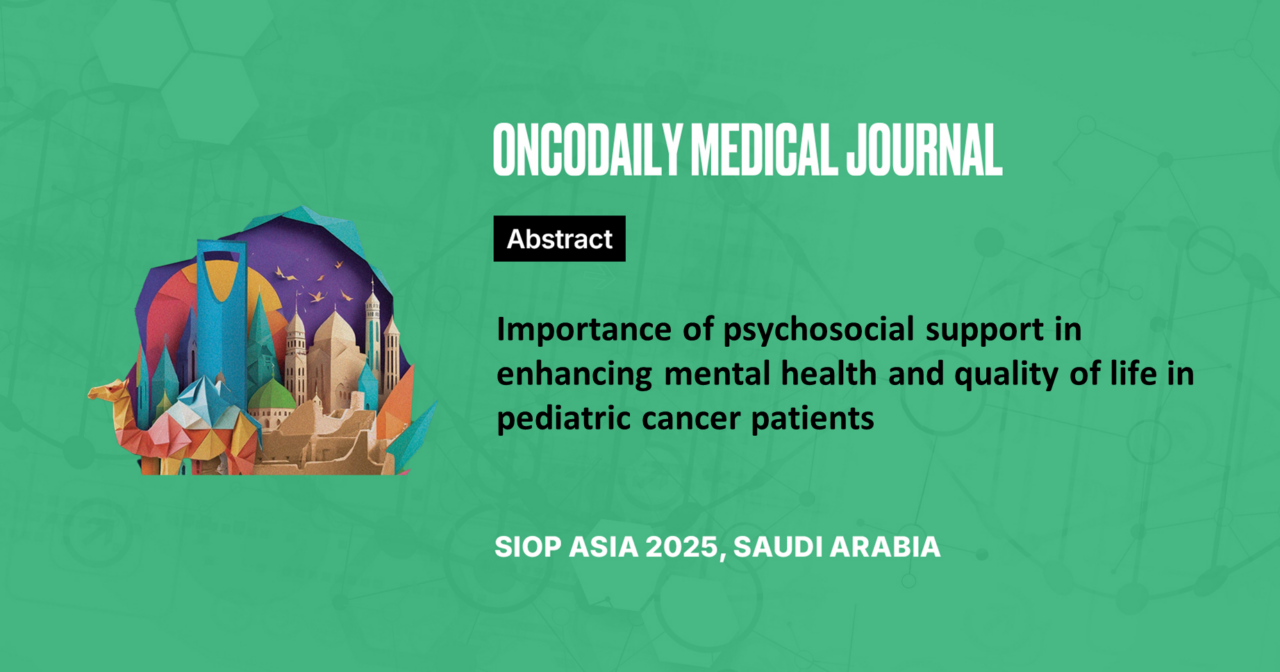Importance of psychosocial support in enhancing mental health and quality of life in pediatric cancer patients
Importance of psychosocial support in enhancing mental health and quality of life in pediatric cancer patients
Introduction: The diagnosis of “cancer” in children imposes profound psychological challenges not only to the patient , but to the whole family. This creates a dual burden of coping with a life-threatening illness and navigating significant stress. While medical advancements have improved the treatment strategies and survival rates ,addressing emotional well-being still remains crucial. This study aims to identify key psychological challenges in pediatric oncology, highlight effective psychosocial interventions and assess the impact of these interventions on mental health, treatment adherence, and family dynamics.
Methodology: A literature review of recent studies and clinical trials was conducted, focusing on interventions targeting emotional resilience and stress management. Data were gathered from peer-reviewed studies focusing on psychosocial outcomes in pediatric patients, and emerging digital solutions, including telehealth platforms, were also evaluated. Additional insights were gathered through interviews with multidisciplinary teams, including oncologists, psychologists, and social workers.
Results: Psychosocial interventions significantly reduced anxiety and depression in pediatric patients, while enhancing coping skills for caregivers. Key psychosocial interventions such as counseling, play therapy, art therapy, animal assisted interventions,cognitive-behavioral therapy (CBT), family-based support systems were analyzed for their efficacy.Such interventions found to be particularly beneficial when supporting the concept of total pain, creating a therapeutic space for a person-centred approach to palliative care. Notably, play and art therapies were particularly effective in younger children, while peer and family support programs had a profound impact on adolescents and caregivers. Digital tools showed promise in extending psychosocial care access, especially in resource-limited settings.
Conclusion: Psychosocial support is a cornerstone of holistic care in pediatric oncology, addressing critical emotional needs of patients and families. Standardized, multidisciplinary approaches enhance mental health outcomes, treatment experiences, and long-term resilience. Advocating for the integration of these services in routine oncology care, especially in resource-limited settings, is essential for equitable, comprehensive care.





